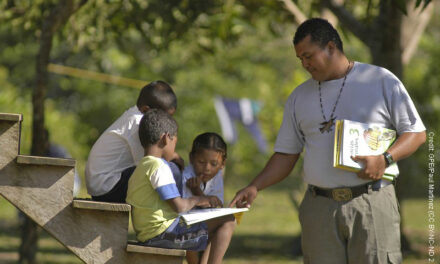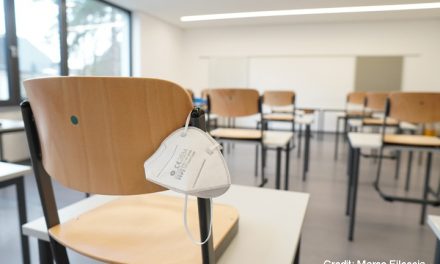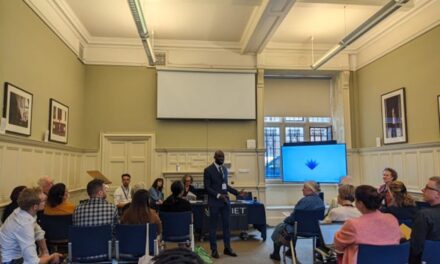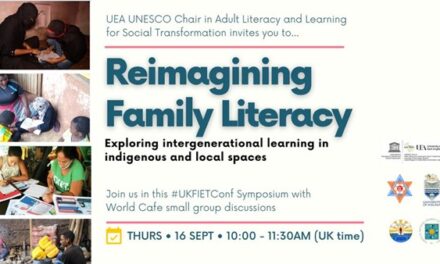This blog was written by Fabiana Maglio, senior international development professional, and Matthew Byrne, senior humanitarian and human rights expert, based on their session at the September 2021 UKFIET Conference.
The available literature on research with young participants affected by forced displacement offers limited discussion on ethical challenges[i]. These issues are particularly acute when it comes to negotiating informed consent (IC). Drawing on our fieldwork research experience, we wish to share what we have learned while negotiating consent with displaced youth and how we managed to incorporate them in the circle of accountability, while promoting greater human agency in the process.
Background
While guidelines on IC proliferate, we found few examples of good/bad IC practice in the public domain. Based on our experience, gaining IC from young people is more problematic than is generally admitted. Researchers would benefit from openly acknowledging its limitations and being more transparent about their less positive experiences. Additionally, we noticed that the time usually allocated to the IC process is often insufficient to allow participants’ collective- and self-reflection.
Our approach
While designing the research methodology, we navigated our way through the concept of ‘procedural ethics’, which involves formal processes of gaining consent through ethics committees, and ‘ethics in practice’, which involves responding to the everyday issues and ethical contingencies that can arise in the context of forced displacement. Asking participants to sign a consent form before data collection proved a feasible and relatively simple way to satisfy formal ethics committee requirements. However, as we experienced in this study, this process reaffirmed the power imbalance between outsider researchers and young participants and failed to respect their autonomy, leaving them with little choice but to participate. All these factors pointed to the need to gain IC at more than one stage.
Drawing on Bustamante et al (2021) we decided to tailor and adopt the Dynamic Informed Consent approach, which allowed specificity about what was being consented to and provided participants with opportunities for open discussion and multiple options to change their opinion at any point in time. Our aim was to defy the ‘hit-and-run’ research practice in humanitarian settings and rather allow individuals to take time to become familiarised with what was for many a very new experience. Details about the research project and data collection activities were provided in an iterative manner through three short sessions to avoid information saturation.
Lessons learned
Overall, nine particular instances have been recorded, across five different countries, in which young individuals either declined to take part, or having initially been involved on the basis described above, then chose not to sign a formal consent form. Although there may be others who felt unable to withdraw because of various factors, these instances demonstrated that withholding or withdrawing consent was felt as a concrete possibility by young participants.
At a deeper level, the Dynamic Informed Consent approach helped enabling partnership and collaboration between researchers and ‘researched’, challenging hierarchies, and overcoming the image of researcher as someone ‘elite’. It also helped ensure that the research provided some reciprocal benefits for those concerned, whether in the form of assisting in building and sustaining trust, enhancing participants’ capacity to exercise their human agency, promoting their meaningful engagement in the research process, and providing opportunity for referral as needed.
The way forward
Since much humanitarian research is action-based, flexibility and time management skills are required to adapt IC protocols. IC ethics cannot be seen as a stand-alone principle that does all the necessary work to ensure that the human agency of forcibly displaced participants is promoted. Ethics should not be seen as something to be left only to experts (although there may be scope for expertise to assist and support colleagues) but it must be regarded as everybody’s business. For instance, it would be important to validate locally contextualised IC processes and procedures for safeguarding in each geographical area in collaboration with institutional review boards to better assist research participants, particularly children and young people in humanitarian settings.
Further guidance from donors would be also beneficial to ensure that funding timelines can accommodate a full ethics application process. It is also important to consider alternatives to formal ethical approvals[ii] to be tested in collaborations with national researchers – rather than solely relying on international expertise. Finally, more time and resources should be invested in raising awareness on research ethics at the global level, in order to share what works and what does not work, as we noted at the beginning as being equally important. This then becomes new methodological ‘food for thought’ in humanitarian research and will help humanitarian researchers to adapt quickly to the key challenges raised in the post-COVID 19 scenario.
References
- Block et al (2012) Addressing Ethical and Methodological Challenges in Research with Refugee-background Young People: Reflections from the Field. DOI: 10.1093/jrs/fes002
- Hugman et al (2011) Human Agency and the Meaning of Informed Consent: Reflections on Research with Refugees. DOI:10.1093/jrs/fer024
- Müller-Funk, Lea (2020) Research with Refugees in Fragile Political Contexts: How Ethical Reflections Impact Methodological Choices. DOI:10.1093/jrs/feaa013
- Maglio, F. (2020) The Impact of COVID-19 on Research Ethics https://www.ukfiet.org/2020/the-impact-of-covid-19-on-research-ethics/
Bios
Fabiana Maglio is a Senior International Development Professional with significant experience in managing large-scale programmes, research and policy initiatives related to education, ethics, and social justice. Following almost a decade as Expert for the Italian Development Cooperation Agency – Ministry of Foreign Affairs, Fabiana served as senior consultant for UNHCR, UNICEF and the World Bank. She has nurtured partnerships by building bridges between decision-makers, practitioners and academia to influence the policy agenda and incorporate gender and social inclusion concerns in advocacy activities.
Matt Byrne is a Senior Humanitarian and Human Rights Expert with 15 years of experience in emergency and protracted conflict settings. He has extensive field coordination and senior management experience across various sectors of humanitarian emergency response, primarily the protection of international human rights and civil society organisations in fragile environments. He has led multinational teams and has done representation, strategy, fundraising, and training.
[i] Particularly with respect to confidentiality, the ‘do-no-harm’ principle, positionality, risk/benefit ratio, as well as on data protection
[ii] For example, peer-reviewed systems which can also support the monitoring of ethical working throughout the research process in ways that don’t compromise on participant safety and practitioner learning.





